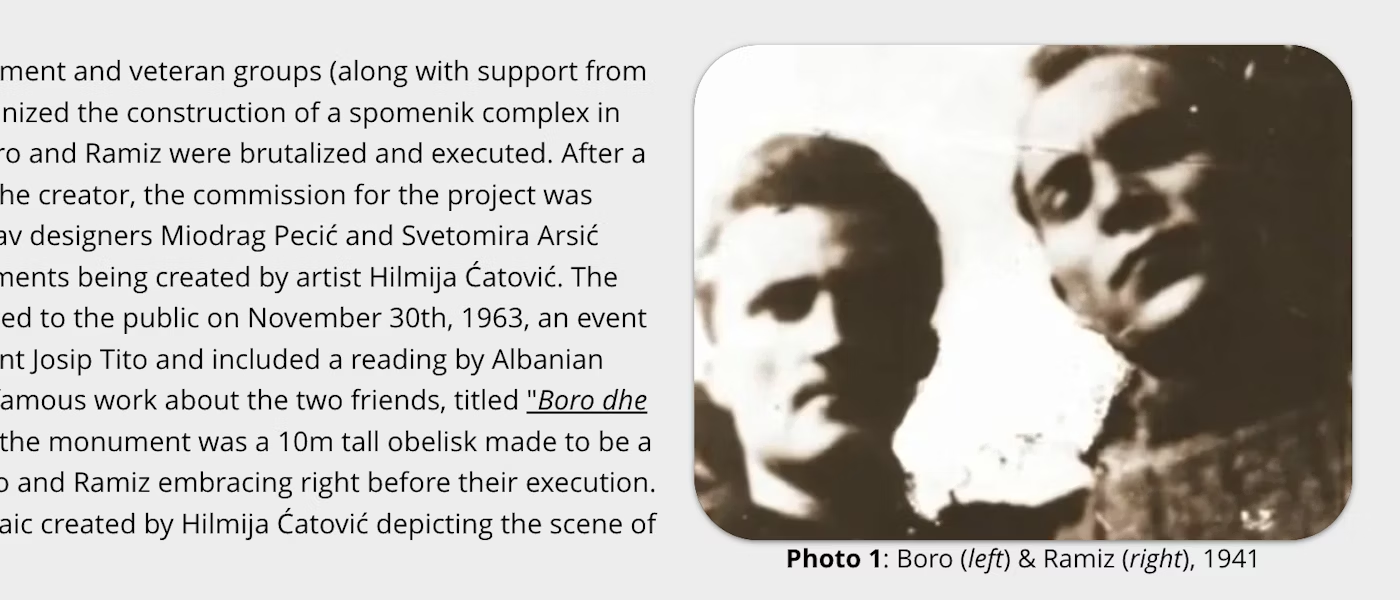
It did not take a long time to read headlines about "Balkan Drama" and national-chauvinist-based hate concerning the European Football Championship. The teams of Serbia, Croatia, and Albania have already been fined because of hateful, hooliganism, extreme behaviors, and communication done by aggressive and indoctrinated fans who show "love" for their countries through primitive, bigoted, and disgusting behaviors.
Despite all the horrors, destruction, and inhumane actions during the 1990s Wars, the Balkan Wars, and the Yugoslav Wars, members of younger generations are showing terrible examples of dealing with the past and reconciliation.
One of the main problems in the Balkans is not "ancient hatred" between peoples, which is a myth and disproven in historical research (for example, there are fewer years of war and violent conflicts between Serbs and Croats than between Frenchmen and Germans). The problem is mainly in what stories, myths, and narratives individuals believe in and how that affects participation in everyday life and the creation of the social world regarding laws, institutions, and relations at different levels.
In the case of the Balkans or former Yugoslavia, there is a heritage of ideas and a history of examples of inter-community cooperation, co-existence, and co-engagement. One example is the idea of the integration of Yugoslavia and Albania after World War II and the Balkan Federation. At the same time, such examples and ideas are controversial and problematic because they were based on (state)communism, which created many other problems, such as the non-existence of civic freedoms, democracy, and human rights. Plus, brutal and authoritarian repression of individuals who are considered to be "political enemies" and traitors.
One example from Yugoslavia's "socialist patriotism" indoctrinating education was the celebration of so-called "people heroes" representing persons who were seen as extra brave during the fittings between communist-led partisan movement/National Liberation Army against the Nazi-German, Fascist-Italy, and other pro-Axis units. Among the awarded ones were Boro Vukmirovic and Ramiz Sadiku, who were members of the Community Party of Yugoslavia and were active in the Kosovo region.
The case of Vukmirovic and Sadiku was seen as extra important for Kosovo as a Yugoslav autonomous province since it showed how a Serb/Montenegrenian and Albanian were able to fight together for political ideas based on the communist ideology where among other things, class, internationalism, Marxist style society was seen as more important than ethnicity and nation. For example, Sadiku demanded equal rights for Albanians in the Yugoslav kingdom but never saw Serbs, in general, as the enemy. Instead, he saw Serb nationalists and ultra-nationalists as political enemies that were not only targeting Albanians but also preventing a shared community life and co-relations between Serbs, Albanians, and others.
Later, through monumental creation, ++Vukmirovic and Sadiku++ became examples of Yugoslavia's public history (mythology in practice) and identity politics. So far, despite what one thinks about communism, they represent one of the few examples of unity and community between members of ethnic groups in the Balkans. How can more examples be created and performed based on democratic values and more regional and global identification? This will contribute to a better post-communist and integrated Balkans through ideas, relations, and behaviors necessary for human cooperation and unity for peace, climate, and welfare.